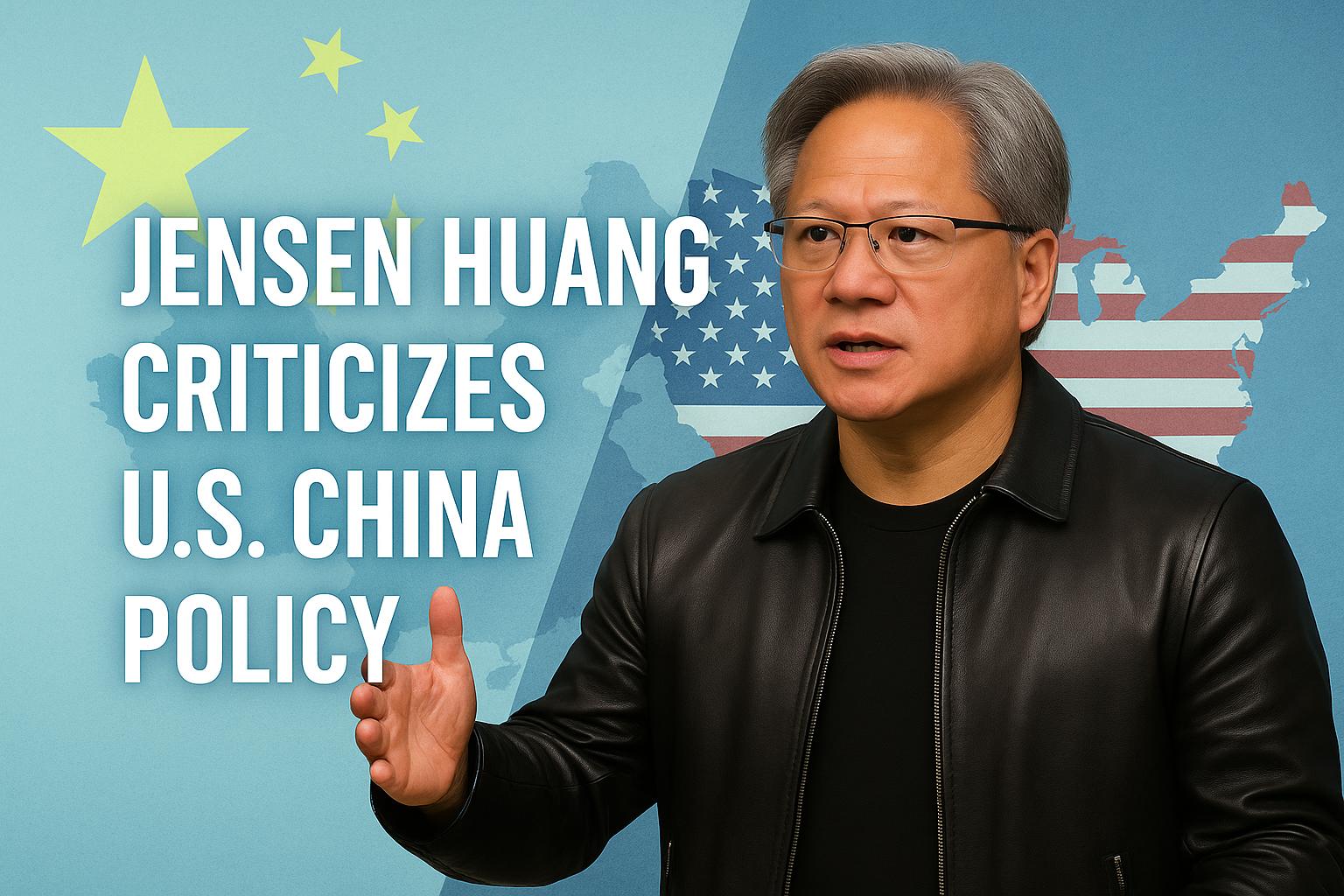Executive Summary
In May 2025, Jensen Huang, founder and CEO of NVIDIA, publicly declared that the U.S. export restrictions on semiconductors to China were a “strategic failure.” His statement, made amid the intensifying U.S.-China tech rivalry, represents a significant corporate challenge to current geopolitical strategy. This report examines Huang’s position as a lens to understand the structure of the U.S.-China technological cold war and its future implications.
U.S. Export Restrictions on China: Background and Objectives
Since 2022, the Biden administration has introduced successive restrictions on the export of advanced semiconductors and AI chips to China. These policies are built on two primary objectives:
- National Security: To prevent the leakage of dual-use technologies with potential military applications.
- Technological Superiority: To delay China’s advancement in the fields of AI and semiconductors.
However, within the operational reality of U.S. firms like NVIDIA, there is growing consensus that these restrictions may be producing unintended consequences—empowering rather than restraining Chinese innovation.

Jensen Huang’s Argument
At a press conference during Computex 2025 in Taipei, Huang made the following points:
“The export controls have failed.”
- NVIDIA’s market share in China has plummeted from approximately 95% to 50%.
- The restrictions incentivized China to achieve self-sufficiency, thereby accelerating state-backed chip development.
- In the AI sector, China is rapidly pushing forward its own architectures (e.g., Huawei’s Ascend).
“Tech isolation is strangling U.S. firms.”
- Due to the restrictions on the H20 AI chip, NVIDIA recorded a $5.5 billion inventory loss.
- Future revenue losses could exceed $15 billion if policies remain unchanged.
- With nearly 50% of the world’s AI researchers based in China, the market is too significant to ignore.
Geopolitical and Market Context
Huang’s criticism is not merely about business losses. It reflects a broader call to reconsider how the U.S. engages in global tech competition. The current dynamics can be summarized as follows:
| Aspect | United States | China |
|---|---|---|
| Policy Approach | Tech containment & deterrence | Self-reliance & state-led support |
| Leading Companies | NVIDIA, Intel | Huawei, Cambricon, Baidu |
| Competition Arena | Global market | Domestic market (self-sufficiency) |
| Capital Cost | High (regulation, investor pressure) | Low (subsidies, strategic investment) |
While the U.S. continues to champion free-market values, its policies are beginning to resemble a command-economy approach under geopolitical pressure. China, conversely, is using external constraints as a springboard for technological autonomy.
Potential Policy Rethink and Future Outlook
Huang’s message implies a need for strategic recalibration:
- “Compete, don’t block”
Rather than halting competition, the U.S. should seek to maintain its edge within open markets. - “From national lockdowns to corporate competition”
Power should be restored to private innovation, not centralized controls over supply chains. - “Strategic flexibility is key”
Comprehensive restrictions risk backfiring, costing American firms valuable global opportunities.
Conclusion: The Future of the AI Arms Race
Jensen Huang’s remarks should not be dismissed as corporate lobbying. They are a warning against rigid and self-sabotaging policies. To regain its technological leadership, the U.S. must return to the core values of American capitalism: flexibility, innovation, and open competition.
The AI arms race between the U.S. and China will help shape global order over the next decade. Whether or not U.S. policymakers listen to voices from industry leaders like NVIDIA will determine whether America continues to lead—or loses ground—in the next technological era.
Source
- Business Insider
https://www.businessinsider.com/jensen-huang-chip-export-rules-china-failure-2025-5 - Reuters
https://www.reuters.com/technology/nvidia-expects-up-55-billion-charge-first-quarter-2025-04-15 - Barron’s
https://www.barrons.com/articles/nvidia-stock-price-jensen-failure-906a6293 - TrendForce
https://www.trendforce.com/news/2025/05/21/news-jensen-huang-nvidias-china-market-share-plummets-from-95-to-50-amid-u-s-export-curbs


